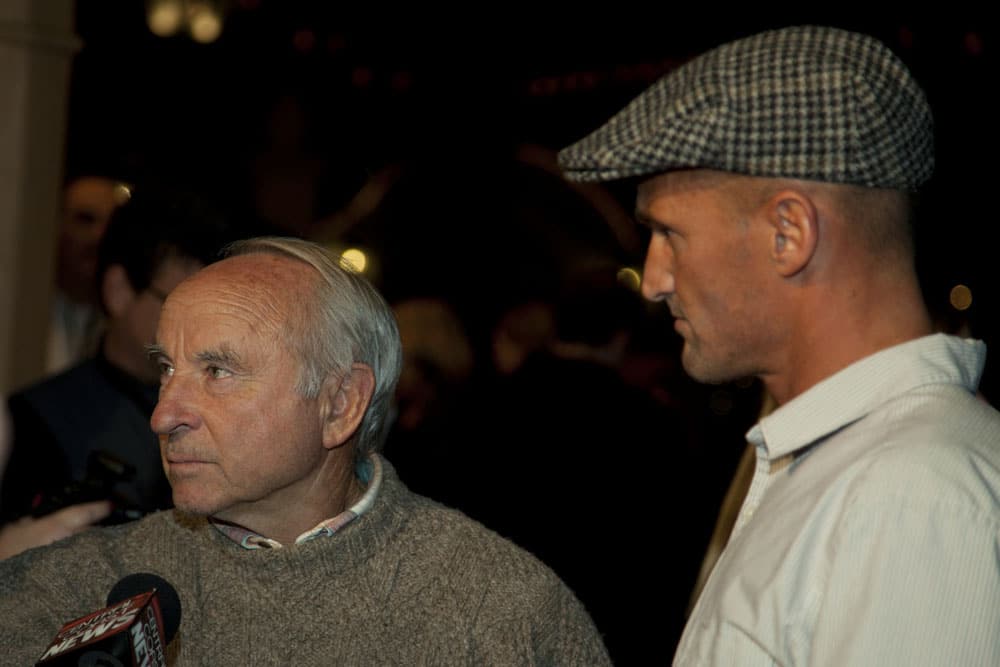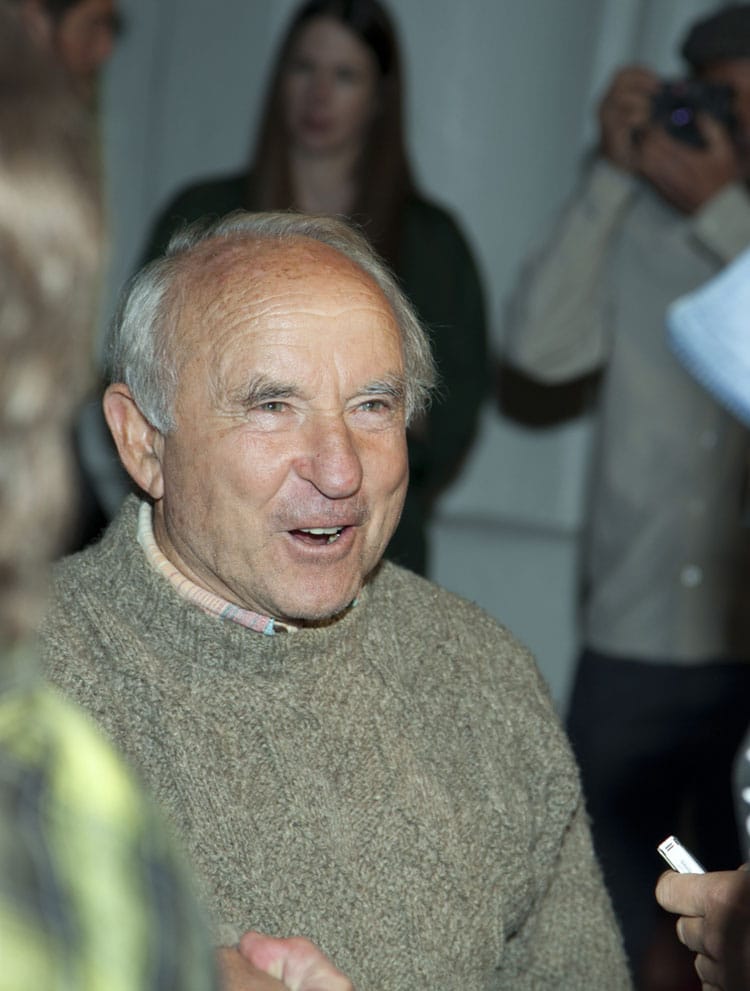4 Key Leadership Lessons from Patagonia Founder, Yvon Chouinard

“We have always considered Patagonia an experiment in doing business in unconventional ways.” These are the words of Yvon Chouinard – the founder of multi-billion-dollar outdoor apparel company Patagonia. He has often done things differently and even said, “I never wanted to be a businessman.”
Recently, you might have read that Yvon “gave away his business.” While that’s not entirely true, he did do something quite impressive.
Yvon transferred 100% ownership of the company to two new entities. He gave 98% of the company’s shares to Holdfast Collective, a social welfare organization fighting climate change, and the remaining 2% to the Patagonia Purpose Trust. It’s still a for-profit company – but now, one with a unique environmental justice mission.
Patagonia will continue to give 1% of profits to grassroots organizations – and all remaining annual profits will support solving climate change. The purpose behind this is to contribute to a thriving planet. The Patagonia founder believes that ongoing resources are necessary to make this happen, so he has chosen to restructure the company.
For those familiar with Patagonia, this should come as little surprise. Since the inception of the company, Yvon – now 83 – has been consistent in his approach to leading a purpose-driven, compassionate, and committed company. His activism while running a profitable business has been exemplary; it’s capitalism with purpose at its finest.

Yvon Chouinard’s leadership style is exceptional.
Here are four important lessons:
Leadership lesson #1: Maintain integrity through purpose and values
From the beginning, Yvon has led Patagonia with a deep commitment to his vision and core value of environmental consciousness. While many companies have started pledging profits to purposeful causes only in recent years, Yvon has been doing this for decades. His commitment is flawless, so his values remain strong.
How has he demonstrated this commitment?
Since 1985, Yvon has pledged 1% of all sales as part of the 1% For the Planet initiative. He also hasn’t shied away from standing up for his beliefs. Whether lobbying or suing the federal government when they announce plans to reduce the size of two national monuments in Utah or moving trade shows and conferences to states that support the environment, Yvon has never been afraid to stand up for his values.
Patagonia has done practical things to demonstrate their continued commitment to their purpose, including the Tools for Activists annual conference, their books, the move in the 1990s to organic cotton, and the level of transparency regarding how and where they manufacture their clothes. This commitment to purpose, consistency in messaging, and transparency has created a solid foundation of trust in the brand and is an indication of the reliable leadership behind the brand.
Leadership lesson #2: Don’t be afraid to go against the norm
Reading that a billionaire business owner has “given away his company” isn’t something you see every day – but Yvon likes to innovate in business. He isn’t afraid to be unique in his approach. His philosophy has always been to do things differently.
How has he done it?
Patagonia, as a brand, has committed to the philosophy of reducing, reusing, and recycling. As a for-profit company, asking people to buy less could have been a risky proposition. But that has not been the case for Patagonia. It has continued to grow successfully despite its leader’s altruistic inclinations.
Patagonia was one of the first companies to focus on how to reuse and recycle older items. In a seemingly odd business strategy, Yvon wanted to stop people from throwing away damaged items and buying new Patagonia clothing. He created a repair guide, program, and scheme for their customers: if a zip breaks, get it repaired – free of charge. The company set up repair tutorials, FAQs, and product questions, so people could do it themselves if needed. This brilliant idea ended up boosting sales and revenue.
Leadership lesson #3: Prioritize employees and workplace culture
Yvon treats his employees with the same respect he treats the planet. Patagonia became a company known for its quality workplace culture because of the structures and overarching mindset Yvon put in place. He reportedly doesn’t care when his employees work, as long as the job gets done. His preference is having motivated and engaged employees in his workforce, rather than rigid policies.
There are small ways Yvon has achieved this: for example, with flexible working: letting his staff go surfing when “the surf is good” (hence the title of his book ‘Let My People Go Surfing’). But he’s done the big things, too: in 1984, he set up the Great Pacific Child Development Centre. At the time, it was one of only 150 office-based childcare centers in the US. Patagonia has thrived on supporting parents and offering extended maternity and paternity leave and achieving gender parity and pay equity.
Yvon doesn’t believe in working to burnout. As a leader, he believes in the value of modeling that a work-life balance is essential, from the top. He even takes time out of the office from June until November each year – a time when he likes to fish.
Leadership lesson #4: Re-evaluate business process when needed
Over the several decades that Patagonia has been in business, Yvon has demonstrated that he is always learning, adapting, open to change, and willing to take on fresh ideas. No leader can stick to one path and expect consistent success. When there are roadblocks, as faced by every business leader, the secret is to re-evaluate how you do business and implement new concepts.
When a recession hit after Patagonia’s rapid and vast growth in the 1980s, business slowed down. Previously, the company had been growing by 50% each year, but this started to stall.
Yvon re-evaluated. His business had grown significantly, so he slowed down when new opportunities started coming back his way and chose to stabilize how the company moved forward. His plan was to future-proof Patagonia to withstand changing economies. This worked beautifully.
Yvon is correct when he says there are two kinds of growth: “one where you grow stronger, and one where you grow fat. You have to look out for growing fat.”
Written by Dr. Samantha Madhosingh.
Have you read?
Developing SaMD products— 4 factors to consider.
Medium-sized business CEOs: make life easier with new software.
CEO Spotlight: Alona Shevtsova has been listed among the TOP 50 most influential women in fintech.
What Every CEO Needs to Understand About Status Quo Bias by Nicci Nesmith Hammerel.
The Power of Listening to what’s NOT said by Oscar Trimboli.
Bring the best of the CEOWORLD magazine's global journalism to audiences in the United States and around the world. - Add CEOWORLD magazine to your Google News feed.
Follow CEOWORLD magazine headlines on: Google News, LinkedIn, Twitter, and Facebook.
Copyright 2025 The CEOWORLD magazine. All rights reserved. This material (and any extract from it) must not be copied, redistributed or placed on any website, without CEOWORLD magazine' prior written consent. For media queries, please contact: info@ceoworld.biz








